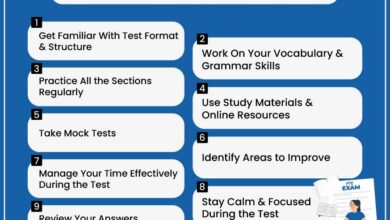Exploring C# Career Paths: Game Development, Enterprise Apps, and More
C# is a versatile programming language that opens doors to various career opportunities, ranging from game development to enterprise applications. With its strong type-checking, modern syntax, and robust framework, C# has become a favorite among developers for creating diverse applications. Whether you’re drawn to the excitement of game development or the structured environment of enterprise applications, C# offers a pathway to suit different interests and career goals.
In this article, we’ll delve into the diverse career paths available for C# developers, including game development, enterprise applications, and more. We’ll explore each field, highlight key skills and technologies required, and discuss how you can leverage C# to build a successful career.
Game Development with C#
Game development is one of the most exciting career paths for C# developers. The language’s integration with powerful game development platforms like Unity makes it an ideal choice for creating interactive and immersive gaming experiences.
Why C# for Game Development?
C# is the primary language used in Unity, a leading game development engine. Unity’s user-friendly interface and comprehensive asset store enable developers to build games efficiently, while C# provides the flexibility to handle complex game logic. If you’re interested in game development, learning C# and Unity can be a game-changer for your career.
Unity supports a variety of platforms, including PC, consoles, mobile devices, and VR/AR systems. With C#, you can develop games across these platforms, opening up numerous opportunities in the gaming industry.
Key Skills and Technologies
To excel in game development with C#, focus on mastering:
- Unity Game Engine: Understanding Unity’s interface, features, and scripting with C#.
- C# Programming: Proficiency in C# syntax, object-oriented programming, and design patterns.
- Game Physics and Mathematics: Knowledge of physics engines, mathematics, and algorithms to create realistic game mechanics.
You might also want to familiarize yourself with concepts like the extension method in C#, which can help streamline your code and make it more manageable.
Enterprise Applications with C#
Enterprise applications are another prominent career path for C# developers. These applications often involve complex business logic, large-scale data management, and integration with various systems.
Why C# for Enterprise Applications?
C# is a staple in enterprise development due to its strong integration with the .NET framework, which offers a comprehensive set of libraries and tools for building robust applications. Whether you’re working on financial systems, customer relationship management (CRM) software, or enterprise resource planning (ERP) systems, C# provides the reliability and scalability needed for these projects.
Key Skills and Technologies
For a successful career in enterprise application development, focus on:
- .NET Framework: Understanding the framework’s capabilities and how to leverage it for building enterprise applications.
- ASP.NET: Expertise in building web applications and services with ASP.NET.
- Database Management: Skills in managing and interacting with databases using Entity Framework or other ORM tools.
Additionally, learning about Partial Class in C# can be advantageous for managing complex codebases and enhancing code organization.
Other C# Career Paths
Beyond game development and enterprise applications, C# offers a range of other career paths that leverage the language’s strengths.
Web Development
C# is widely used for web development, particularly with ASP.NET. This framework allows developers to build dynamic and scalable web applications, from simple websites to complex web-based platforms. Mastering ASP.NET Core can be particularly beneficial, as it’s designed to be cross-platform and lightweight.
Cloud Computing
As cloud services continue to grow, C# developers who are proficient in cloud computing can find ample opportunities. Azure, Microsoft’s cloud platform, integrates seamlessly with C# and provides tools and services for building and managing cloud applications. Familiarity with Azure services, such as Azure Functions and Azure DevOps, can enhance your career prospects in cloud computing.
Mobile Development
C# also supports mobile development through Xamarin, a framework that allows you to build native applications for Android and iOS using a single codebase. This can be a great way to diversify your skill set and tap into the mobile app market.
How to Get Started with C#
If you’re new to C#, there are several steps you can take to start your journey:
- Learn the Basics: Start with fundamental C# concepts, such as data types, control structures, and object-oriented programming.
- Explore Frameworks and Libraries: Dive into frameworks like .NET and tools like Visual Studio to understand their role in C# development.
- Build Projects: Apply your knowledge by working on small projects, whether it’s a simple game, a web application, or a utility tool.
- Join the Community: Engage with C# communities, forums, and online groups to stay updated and seek support.
Conclusion
Exploring C# career paths reveals a world of opportunities, from the thrilling realm of game development to the structured domain of enterprise applications. By mastering C# and its associated frameworks and tools, you can embark on a rewarding career that aligns with your interests and goals.
Whether you choose to develop games, build enterprise solutions, or explore other areas like web and mobile development, C# provides the foundation you need to succeed. So, dive into learning and practicing C#, and let your career aspirations take flight.
FAQ:
What is C# used for?
C# is a versatile programming language used for various applications, including game development, web development, enterprise applications, and mobile development. Its strong integration with the .NET framework and platforms like Unity makes it a popular choice among developers.
Do I need a degree to become a C# developer?
While a formal degree in computer science or a related field can be beneficial, many successful C# developers have built their careers through self-study, coding bootcamps, and hands-on experience. The key is to demonstrate your skills and build a strong portfolio.



